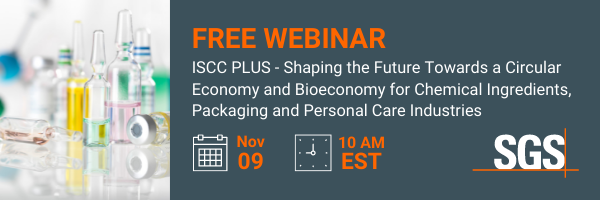Regulations & EHS&S
REACh – Preparing for May 31, 2018 20th November 2017
By Jim DeLisi, Chief at Fanwood Chemical
Jim DeLisi, Chief at Fanwood Chemical, warns colleagues to pay heed to the forthcoming REACh deadline. As the May

Jim DeLisi, Chief at Fanwood Chemical, warns colleagues to pay heed to the forthcoming REACh deadline.
As the May 2018 deadline nears for the European Union’s Registration, Evaluation, Authorization and Restriction of Chemicals (REACh) program, we hope SOCMA members recognise that all chemicals, both substances as well as intermediates imported or produced in Europe (including Norway, Iceland and Liechtenstein) in quantities in excess of 1 metric ton per year (MT/year), must be fully registered. SOCMA member companies also must register additives and/or solvents shipped into the EU in the normal course of their business if such quantities exceed the required limit. We have seen several instances where such additives and solvents trigger the need to file a REACh dossier.
While Brexit is real, it cannot happen before 31st May 2018. Therefore, the United Kingdom (UK) Chemicals Industry is still required to comply with REACh in 2018, and likely into 2019, under existing rules and regulations. It is highly likely that post-Brexit, the UK will become a REACh partner country like Norway. This makes perfect sense because the money will be spent, and the EU will remain the dominant market for UK chemistries.
It is important to understand REACh also covers “articles designed to release a substance.” In the simplest example, a pen is an article that releases a substance: ink. Any components in the ink that exceed 1 MT/year must be fully registered by the deadline.
Similarly, polymers cannot be registered, but the individual monomers and additives must be registered as substances (not intermediates) under this same timeline.
As of 31st May 2018, all pre-registrations will expire. The expiration deadline is important because EU-compliant material safety data sheets (MSDS) must include a pre-registration or registration number. Therefore, if a product is not registered as of 1st June 2018, and is located any place except a consumer’s factory, it may be locked in place because it cannot be shipped or delivered without a fully EU-compliant MSDS.
There is also existing controversy about what happens with shipments made after January 1, 2018. The two theories are:
- Since all quantities under REACh are calculated on a calendar year, if you import (or produce in Europe) more than 1 MT after 1st January 2018, you will be obligated to fully register that substance by 31st May 2018
- If you do not intend to register, as long as you do not import (or produce in Europe) an unregistered material after 31st May 2018, you are not obligated to register.
To ensure materials that are properly pre-registered, but are not intended to be registered, are legally deliverable to a customer, it likely makes sense to ensure all quantities are imported into the EU (or produced in Europe) prior to 31st December 2017, and then delivered to a consumer prior to 31st May 2018.
Since REACh enforcement is the responsibility of the individual EU Member States, decisions on how these issues are handled could potentially vary from State to State!
What does all of this mean? SOCMA member companies should ensure that:
- Everything supplied to Europe in quantities exceeding 1 MT/year is properly registered under REACh by 31st May 2018
- Your EU customer can continue to source any other component required to consume your material.
Lastly, SOCMA member companies purchasing chemicals sourced in the EU should ensure the EU manufacturer intends to register such substances. Unlike the US Toxic Substances Control Act (TSCA) and most other international chemical regulations, REACh does not have an export exemption. Additionally, intermediates specifically used in the production of pharmaceuticals must also be registered under REACh, as there is no exemption for such substances.
For those just realising your company has a need for REACh registration, you should begin the process immediately. Thankfully, if you are not an “EU person,” you cannot be in violation of REACh. However, the EU person importing your products could be in significant trouble, and you will likely lose your EU business if you do not support the need for REACh compliance. In addition, if you have made any representations about REACh compliance to such importers or customers, while the EU cannot prosecute a “non-EU person,” your customers can. This will happen if your lack of action places their business interests in jeopardy.
Please contact us if we can help you sort through this very intricate regulation.
Author:
Jim DeLisi, Chief at Fanwood Chemical, 219 N Martine Ave, Fanwood, NJ 07023, USA
E: Jdelisi@fanwoodchemical.com; T: +1 908 322-8440
E: Jdelisi@fanwoodchemical.com; T: +1 908 322-8440



